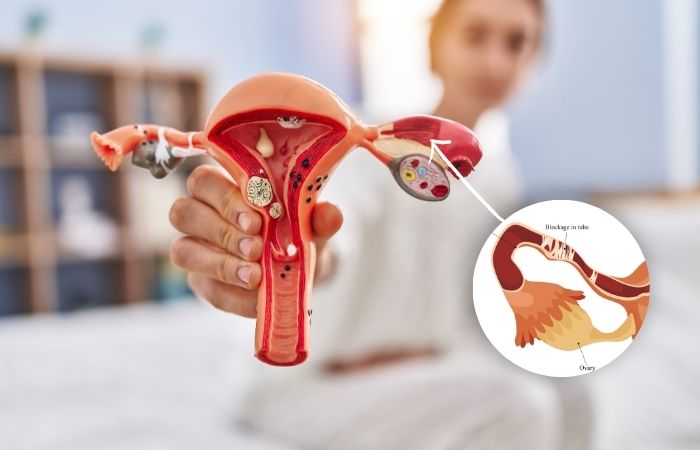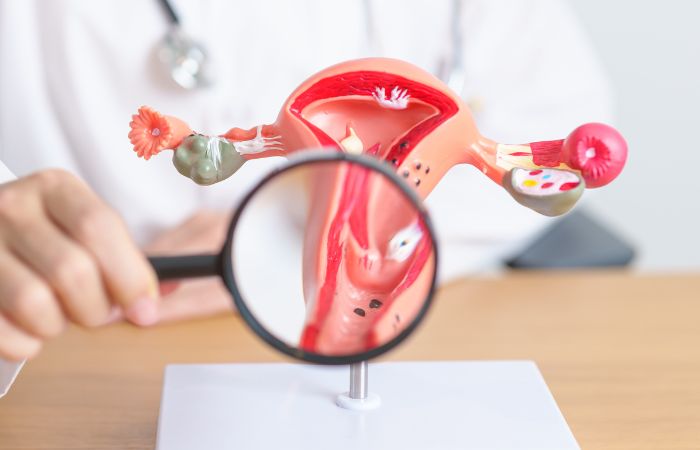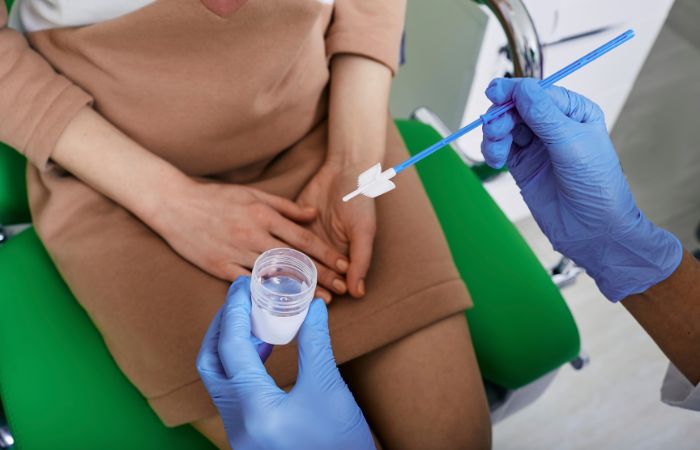Patients often wonder if pregnancy is possible when both fallopian tubes are blocked. This common concern arises because the fallopian tubes play a crucial role in the fertilization process, acting as the pathway through which the egg and sperm meet. When these tubes are blocked, it can significantly hinder natural conception, leading to questions about available treatment options and the potential for achieving pregnancy through alternative methods. Understanding the underlying causes and solutions is key to addressing this important issue.
What are Fallopian Tubes and Why are they Important?
Fallopian tubes are two slender tubes located on either side of the uterus. These tubes are vital for natural conception because they serve as the passage through which eggs travel from the ovaries to the uterus. Each month, during a woman’s menstrual cycle, an egg is released from one of the ovaries in a process known as ovulation. The fimbriae, which are the fringed ends of the fallopian tubes, catch the egg and guide it into the tube.
The fallopian tubes are not merely passive conduits; they play an active role in the reproductive process. Sperm, after entering through the vagina and passing through the cervix and uterus, meets the egg in the fallopian tube. Fertilization, the union of sperm and egg, typically occurs within the tube. After fertilization, tiny hair-like structures, known as cilia, within the tube help propel the fertilized egg, or embryo, towards the uterus. Once in the uterus, the embryo can implant into the uterine lining and begin to develop into a pregnancy.
What does it mean if Fallopian Tubes are Blocked?
Blocked fallopian tubes, also known as tubal occlusion, can prevent the egg and sperm from meeting, thereby hindering natural conception. A blockage can occur at any point along the tube, and depending on the location and extent of the blockage, it can lead to partial or complete obstruction.
There are several causes of blocked fallopian tubes, but one of the most common in India is tuberculosis. This infection can cause significant scarring and damage to the fallopian tubes, leading to blockages. Outside of India, sexually transmitted infections (STIs) such as gonorrhea and chlamydia are common causes of tubal blockage. These infections can result in pelvic inflammatory disease (PID), which can scar the fallopian tubes and other reproductive organs. Other potential causes include endometriosis, where tissue similar to the uterine lining grows outside the uterus, causing inflammation and scarring, and previous pelvic or abdominal surgeries, which can lead to adhesions or scar tissue that blocks the tubes.
How are Blocked Fallopian Tubes Diagnosed?
When a woman is trying to conceive and encounters difficulty, the evaluation of the fallopian tubes becomes a critical step in understanding the underlying issues. There are several diagnostic tests available to assess the patency, or openness, of the fallopian tubes.
- Salpingography or Sonosalpingography: These are often the first tests recommended to evaluate the fallopian tubes. Salpingography involves the use of a contrast dye that is injected into the uterus and then observed as it travels through the fallopian tubes using imaging techniques. If the dye does not pass through the tubes, it indicates a blockage. Sonosalpingography is a variation of this test where saline mixed with a dye is used, and the process is observed via ultrasound.
- Hysterosalpingography (HSG): Considered the gold standard for evaluating tubal patency, HSG is a radiologic procedure that involves injecting a dye into the uterus through the cervix and taking X-rays to see if the dye spills out of the fallopian tubes into the abdominal cavity. This spilling indicates that the tubes are open. If the dye does not pass through, it suggests a blockage.
- Hysteroscopy: This is a more invasive but definitive diagnostic procedure where a hysteroscope, a thin, lighted tube, is inserted into the uterus to directly observe the fallopian tubes. During this procedure, any blockages detected can sometimes be treated immediately through a process called hysteroscopic cannulation.
Is Pregnancy Possible with One Blocked Fallopian Tube?
Patients often ask whether pregnancy is still possible if one fallopian tube is blocked but the other remains open. The answer is yes, it is possible. If only one tube is damaged while the other is healthy, natural conception can occur through the open tube. However, it’s important to note that the presence of one blocked tube may increase the risk of an ectopic pregnancy, where the fertilized egg implants outside the uterus, often in the fallopian tube. Ectopic pregnancies are a medical emergency and require prompt treatment.
What are the Treatment Options if both Tubes are Blocked?
If both fallopian tubes are blocked and pregnancy is not occurring, there are several treatment options available, depending on the severity and location of the blockage, as well as the overall health of the patient.
- Hysteroscopic Cannulation: This procedure can be used to open blocked tubes. A thin catheter is passed through the hysteroscope into the fallopian tube to clear the blockage. If successful, this can restore the natural pathway for the egg and sperm, allowing for a natural pregnancy.
- Intrauterine Insemination (IUI): In cases where one tube is partially blocked, IUI might be recommended. In this procedure, sperm is directly placed into the uterus to facilitate fertilization.
- In Vitro Fertilization (IVF): IVF is often the best option when both tubes are completely blocked. In IVF, eggs are retrieved from the ovaries and fertilized with sperm in a laboratory setting. The resulting embryos are then transferred directly into the uterus, bypassing the fallopian tubes altogether.
IVF has become a highly effective treatment for tubal factor infertility. Blocked fallopian tubes can be a significant barrier to natural conception, but with modern medical advances, there are several ways to diagnose and treat this condition. If you suspect that blocked fallopian tubes are affecting your ability to conceive, it is important to consult a specialist. Dr. Aditi Godbole, top gynecologist in Thane helping patients to fulfill their fertility journey with personalized care and advanced treatment options. Schedule an appointment today to discuss your concerns and explore the best path forward to achieve your dream of motherhood.







